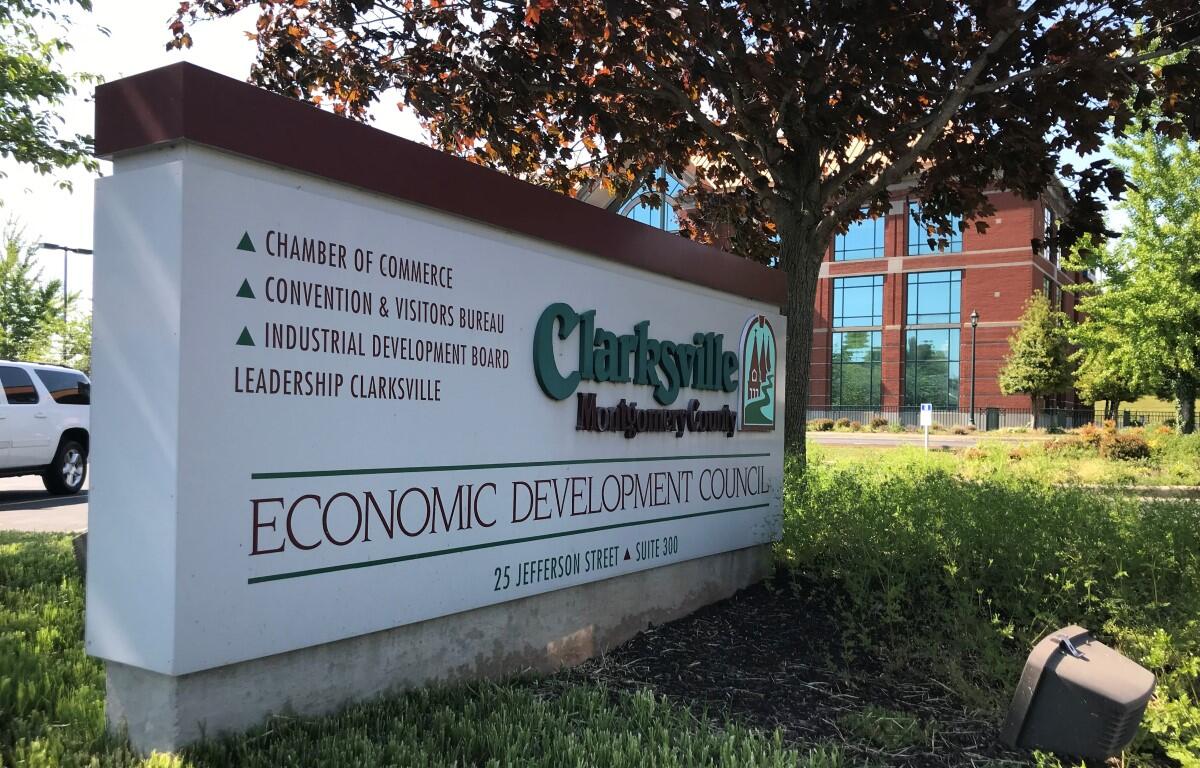CLARKSVILLE, TN (CLARKSVILLE NOW) – The director of a local government agency was fired in Clarksville after complaints led to an internal investigation, and two weeks later, taxpayers are still in the dark about why.
The secrecy surrounding the investigation and the discussion of it could be in violation of Tennessee laws surrounding open meetings and public records. And one member of the Industrial Development Board has resigned in protest of the way the matter was handled.
Director’s firing
Frank Tate was terminated from his role as executive director of the Clarksville-Montgomery County IDB during an Economic Development Council meeting on April 28.
While the IDB and its staff now fall under the EDC umbrella, the IDB was the body that hired Tate, and its members weren’t consulted about his firing. The IDB used to operate with more autonomy, but was absorbed under EDC in a reorganization. Three members of the IDB serve on the EDC Board.
Carl Wilson, who served on the IDB for over 20 years, twice as chairman, resigned in protest on May 5.
“Given recent events with the EDC and IDB, I cannot continue to serve as a member the Board. Effective immediately, I resign my position as a member of the Clarksville-Montgomery County Industrial Development Board,” he said in his resignation letter to IDB Chairman Wally Crow.
“I was frustrated with the way the situation with Frank Tate was handled,” Wilson told Clarksville Now. “I really don’t know any of the details of why he was let go. He had worked for the board since he came here, and I felt like the board should have been at least consulted before any action was taken.”
Open meetings
During the April 28 EDC meeting, the board was called into executive session for an attorney-client discussion, and members of the public, including the media, were asked to leave. After about an hour behind closed doors, the board reconvened and immediately voted to fire Tate.
The Tennessee Open Meetings Act states “the formation of public policy and decisions is public business and shall not be conducted in secret.”
Tennessee law does allow meetings to be closed for the body to hear advice from its attorney on current, pending or potential litigation. Discussion in those meetings is limited to conversation between the attorney and members of the board, according to Deborah Fisher, executive director of the Tennessee Coalition for Open Government.
Board members are not allowed to make statements or have conversation among themselves during such a session, which could constitute deliberation toward a decision.
Since 1990, Tennessee has worked under a specific definition of what constitutes deliberation, established by the Court of Appeals in Meese vs. Paris School District: “To examine and consult in order to form an opinion or the weighing of arguments for or against a proposed course of action.” If that takes place during a closed meeting, the board’s actions associated with that meeting could be nullified.
Public records
During that April 28 closed meeting, the board received the Tate investigation report, which, as of May 11, has not been made public despite multiple requests by Clarksville Now.
The investigation was called for during the board’s April 1 meeting by County Mayor Jim Durrett, who said he had received two complaints about an employee of the EDC, “both dealing with employment matters,” according to board minutes. Durrett made a motion that the board retain someone not affiliated with the board to investigate the matter and report back to the board.
Durrett said the investigation was completed by Mark Travis, whose affiliation has not been disclosed.
County Attorney Tim Harvey contends that because the report was delivered to the board during a closed session, the report is not a public record. In an email to Clarksville Now, he states that it is an “attorney work product.”
However, a 2008 Office of the Open Records Counsel memo provided by Harvey states that Tennessee Court of Appeals has defined “work product” this way: “In order to qualify as work product, the party seeking protection must establish the following three elements: (1) that the material sought is tangible, (2) that the documents were prepared in anticipation of litigation or trial, and (3) that the documents were prepared by or for legal counsel.”
Nothing in Durrett’s motion, approved by the board, states that the investigation was in anticipation of litigation, and the investigation was to be done by an unaffiliated party for the board, not by or for the attorney.
Fisher with TCOG said the investigation report should be made public.
“A governing body with authority over public matters in Montgomery County should not be allowed to commission a secret investigation about the operation of government and then keep the entire result of that investigation confidential,” Fisher told Clarksville Now. “That is contrary to the principle that the public has a right to know how government is operating, including when and if something wrong may have occurred. Government is not supposed to cover up those things.”


